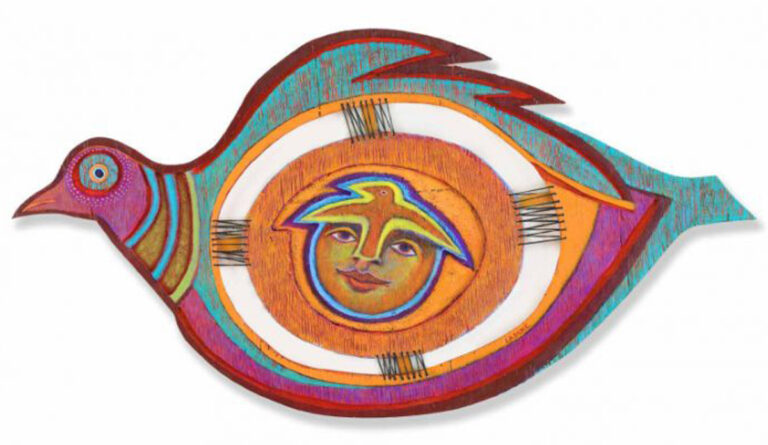As the oil and gas pipeline boom crosses the United States and Canada, indigenous activists say the influx of male workers in Native communities has corresponded with a spike in the kidnapping and murder of indigenous women. We speak with Winona LaDuke, Ojibwe environmental leader and executive director of the group Honor the Earth. She lives and works on the White Earth Reservation in northern Minnesota.
Transcript
AMY GOODMAN: I wanted to go to a different aspect of the building of these pipelines. According to a recent study, police in many U.S. cities fail to track murdered, missing indigenous women. Can you talk about who they are? What is—when we cover a protest, you’ll always see a group of women or indigenous people and their non-indigenous allies carrying missing and murdered indigenous women and girls signs.
WINONA LADUKE: You know, almost every family in my community has one of those women. I have one of those women who was found in the river, in the Mississippi River. You know, it is something that—it’s not even a PTSD; it’s an ongoing stress in the community, you know, because you see what happens.
And, you know, there’s a number of circumstances. One is, is that a lot of our people have been made refugees, you know, made refugees by megaprojects. So, you look at Winnipeg. You’ve got people living in hotel rooms for five years, displaced from their Northern communities. Across the North, you have that story of displacement, you know, by poverty, but also by megaprojects. So people end up like invisible, invisible on the edges of cities. So you’ve got cities like Fargo, North Dakota. You’ve got cities like Duluth, Minnesota, where homeless Native people represent a significant portion of the population—I mean, of our population. I mean, we’re not doing well in these cities when we’re on the periphery.
And so, you know, from those circumstances and from the circumstances of mining camps and man camps, you see a spike in the number of indigenous women that are kidnapped and murdered. And it is something that—you know, it’s prevalent.
AMY GOODMAN: It’s something like 10 times the rate of other women.
WINONA LADUKE: Yes, yes.
AMY GOODMAN: What are man camps?
WINONA LADUKE: Man camps are, when they do a megaproject, they bring in a bunch of guys. And they stay sometimes in trailers, although Enbridge is trying to put them just in the cities now, in the towns. And with them, there is a whole bunch of drugs, usually. And there’s a whole bunch of bad stuff. And then there are these large camps of men. And, you know, in North Dakota, the violence rates spike significantly, the murder rates spike significantly.
AMY GOODMAN: So, what can you do about this?
WINONA LADUKE: You can fight megaprojects. You know, there’s no way to put lipstick on a pig. You cannot make a pretty man camp.
AMY GOODMAN: When I spoke to you at Standing Rock, you said you’re not going to spend your life fighting one pipeline after another. What do you think about that now, as we wrap up?
WINONA LADUKE: You know, I’ve spent five years fighting Enbridge. I’ve spent five years fighting Enbridge. But, to me, the answer is really in what is the infrastructure future of this country. You know, do we want pipes for people? You know, Flint, Michigan, does not have pipes. I have pipes that are sitting in piles in northern Minnesota that we do not want. I say, send them to Flint. What we need is a New Green Deal, where indigenous peole are at the front of it, you know, in the middle of it, in determining the future. And that Green Deal will have infrastructure for people in it.
AMY GOODMAN: Winona LaDuke, Ojibwe environmental leader, executive director of the group Honor the Earth. This is Democracy Now! Back with Yanis Varoufakis in 30 seconds.


